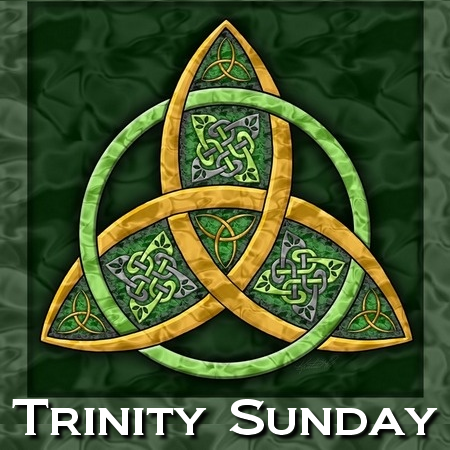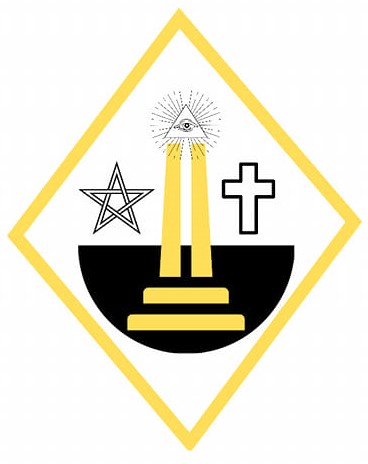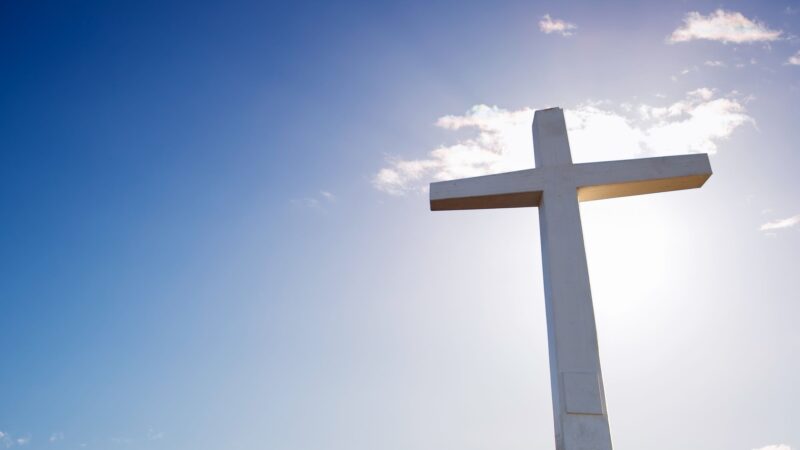Mark 6:14-29
Preached at St. Nicholas United Methodist Church Hull, Massachusetts
July 14, 2024
This morning, I was going to begin a series on worship based on the lectionary readings from 2nd Samuel. However, the day’s events have changed my course and topic for this morning.
In my twenty years of ministry, I have changed sermon topics on at least a dozen occasions, either the morning of the sermon or while driving to the church. As I reflect on those times, all of them involved a gun.
Do I need to stand here this morning and say that gun violence has gotten out of hand in America? Is it possible that we love guns so much we are willing to sacrifice more lives so that I can own an AR-15? What anyone needs to own a weapon like this goes way beyond my capacity to reason.
But yesterday, our love of guns and political rhetoric took an evil and nasty turn. Lord knows I am no fan of the former president, and I pray he does not get elected, but this is not the way we settle differences; we must be better than this.
I oppose the former president with every fiber of my being, but I never want to see him or anyone in his family be the target of harm. My prayer last night and this morning is for his health and safety and those injured and killed. I especially pray for the family of the shooter as they try and make some sense of all of this.
But on the other hand, I have to ask the question, are we surprised by this? Just this past week, a right-wing activist hoping to become the former president’s “secretary of retribution,” released a “hit list” of more than 300 targets. Most names on the list are media types, politics, and judges, who all came down on the other side of where the former president lands.
But the problem is not these guys; there have always been whack jobs advocating for political candidates; the problem is those who listen to them and get radicalized to the point they feel they need to do something. So, they travel to Washington and decide to take over the Capitol building or take a shot at a presidential candidate.
I also need to say that you are wrong if you are celebrating what happened yesterday. There is nothing to celebrate, nothing at all. There is nothing remotely Christian about any of this. This is not a time for celebration; this is a time for mourning.
We also need to pause and acknowledge our grief. Grief for what we have lost and grief for what we have become. But I also grieve for the man who was killed. He was someone’s son, brother, husband, father, and friend. He was having a good time and did not deserve this, and his family did not deserve this. We are better than this. We must be better than this.
But in some sort of weird lectionary timing, we have a story this morning about another political assignation: the murder of John the Baptist. However, this story is not just about the end of John the Baptist; this story is about corruption, a leader’s corruption, and his family’s corruption. This story is about how one person would go to great lengths to silence a political foe.
As you know, John the Baptist is the cousin of Jesus. John was about six months older than Jesus; tradition refers to him as John the Forerunner. John was the one who came to announce that Jesus was coming. He lived a wild life. Scripture tells us he wore clothes of camel hair and ate whatever he could find. He called people to repentance, and, as his name would suggest, he baptized people.
But John was clear in his message: he was not the Messiah that man was yet to come. John’s job was to prepare things like the warmup act before the main band came out to play.
John had gotten himself on the wrong side of King Herod. You see, John would call people out for their behavior, and it did not matter if one was a pauper or a king; you did wrong, and John called you out for it. What was Herod’s crime? He married his brother’s wife. He divorced his wife and married the wife of his brother. By all accounts, she was willing to go along with this deal.
This King Herod was the grandson of another King Herod, Herod the Great. Herod the Great ruled over a unified Kingdom, but he divided it among his relatives when he died. Our Herod, called Antipast, was sort of a sub-king, but he wanted to restore his grandfather’s Kingdom, and it did not matter who got in his way. Herod wanted to be not only King of Jews but also known as a friend of the Romans.
Herod needed to gain the attention of Rome. After all, he was the King of a place no one had heard of and to which no one wanted to go. To be sent to Galilee meant you had fallen out of favor with Cesar. This was not a nice place to live and work. So, Herod launched an ambitious building program. He was going to make Galilee a great city, a big city, and he was going to make the Romans pay for it.
In those days, marriages were arranged to advance the family, so Herod married an Arabic Princess who would form a political alliance. But Herod fell in love with his brother’s wife and, much to the anger of the Princess’s family, divorced her so he could marry again.
The other problem Herod had was a problem of legitimacy; Herod’s family came to the throne when Marck Anthony convinced his superiors back in Rome that Herod the Great, who was not called Herod the Great at the time, would make a good King. But Herod’s new wife, who happened to be called Herodias, came from a Jewish dynastic line, so their marriage lent some credibility to his claim to the throne. This is all starting to sound very Game of Throneish to me.
As one can imagine, none of this sat very well with the Jews whom Herod claimed to rule. Although divorce was tolerated in some circumstances, this was not one of them. But what can you do about a leader who has been married a few times? The Romans liked Herod, so they looked the other way as long as he kept the peace in Galilee.
The religious writer Dianna Butler Bass summarizes what happens next. “John the Baptist wasn’t just a religious zealot who opposed divorce and remarriage. He charged Herod with ignoring Jewish law. And, in doing so, highlighted the corruption of these two idolatrous dynasties joined in this unholy matrimony. John wasn’t only attacking Herod for having sex with the wrong person (his brother’s wife) but for both being in bed with the Romans.
John didn’t accuse him of sexual immorality. By going after this scandalous marriage, John attacked Herod’s entire imperial project of collaborating with Rome while trying to gain religious legitimacy with the Jews to further his ambition. Herod could ill afford the bad publicity. The Arabic Kingdom to his south was already angry at him for divorcing and exiling their Princess; he couldn’t risk angry local Jews at the palace gates.”
Words have the power to persuade you to do things you might not otherwise want to do. This power of persuasion can be a good thing. We preachers use our words to persuade those listening to pursue a different course in their lives. My entire ministry is geared toward helping people see that we walk with Christ when we care for those on the margins and love everyone. I am unsure how successful I have been; sometimes, I feel like I have failed, but we soldier on.
Then there are those who use their power to corrupt. Those who preach hatred. Those who preach that some people are less human just because they look, act, believe, or love differently. They use their power to make us afraid of those who are different. And sometimes, their words move people to perpetrate acts of violence on those people they are afraid of.
Now, I cannot blame them; they have been repeatedly told that those who are different are responsible for their lot in life. They are the reason they lost their job or that they are coming for their job. They have been told that the ones who are different are getting stuff that they should be getting. They believe them because they have been repeatedly told that they are animals and should be treated as such. This language, this rhetoric, is the same that was used to justify slavery and the Holocaust.
The leader becomes Charismatic when they say things you want to hear, when they speak your language, and when they make you feel better about yourself. When they tell you it was someone else’s fault, you lost your job rather than the fact that you decided to try and overthrow the government rather than come to work. And sometimes, that charismatic leader gets you to drink the Cool Aide, hide in a shack in Wacco, or take revenge on their political enemies. All the while, the leader hides, like a coward, behind their Constitutional right to say whatever they want. How many more lives must be destroyed because one man is a sore loser?
But I cannot place all the blame at one person’s feet. We did not get to where we are because of the ramblings of a failed political candidate. We got to where we are because we let it happen. I believe we got here because we stopped listening to each other and started talking over each other.
Let me say this as loud as I can: It does not matter who started it or which side began the moral decay in which we now find ourselves. What matters is that we need to be the ones to stop it. It needs to stop, and it needs to stop right now.
Now, we do not need to listen to every conversation. I will not listen to a conversation with someone who believes others are less than or deserve less. Not all points of view are equal, nor do all points of view need to be given time. Some beliefs need to crawl back under the rock they climbed out from under.
But with that said, we have lost the ability to have rational discussions. Politics has always been nasty. No one likes to see the sausage made, but at the end of the day, most politicians did what was best for the country, not what was best to get them reelected or to keep their party in power. The word politics comes from Latin, which means of the people or what is best for the people.
This afternoon, I will be preaching at Asbury Grove in Hamilton, Massachusetts. The Grove was founded as a Methodist camp more than 100 years ago. Nicky and I own a cottage there; it is a wonderful place to spend time. I was instructed not to preach about anything controversial or political. Well, try as I might, I cannot find anything in Scripture that is not controversial or political.
So here is the problem: We cannot have conversations about controversial or political topics because we have been told not to for generations. We have lost the art of conversation.
A recent law in Louisiana requires that each public school classroom display the Ten Commandments. First, the version the law requires to be posted cannot be found anywhere in Scripture. Second, why not focus on the words of Jesus rather than the words of the law?
We have not forgotten how to make laws and ensure that some people obey them; we have forgotten about mercy, justice, and, most importantly, love. Jesus said he was giving us a new commandment: to love God and love our neighbor, and yes, our neighbor included those we consider our enemies.
But Jesus did not stop there. Jesus said all the law and the prophets hang on this new commandment. Jesus’ entire ministry was about love and how to love. Everything Jesus did was from a position of love. Jesus taught that by loving our neighbor, we would love God.
The Commandments, the ones listed in Scripture anyway, are divided into two groups: one about our relationship with God and the other about our relationship with others. Love God, love neighbor. We don’t steal from those we love, harm those we love, pass legislation that harms those we love, or support people whose words and actions harm those we love.
Friends, we are in a horrible mess. It has been said that our country has not been this divided since the Civil War, a war that was fought over how we treat others. We did not get here overnight, and the Lord knows it will take a long time to climb out of this hole.
But can we decide right now that we will be part of the solution rather than continuing to be part of the problem? Can we decide that we will love just a little bit more? Rather than tell that joke, we say something nice. I do not hate those I oppose; I don’t understand them and may not like what they stand for, but I do not hate them.
Jesus was murdered for political reasons, Jesus upset the status quo. Jesus, like John the Baptist, held people accountable for their actions, but Jesus did it in a way that showed mercy, justice, and love, which upset the establishment. Jesus’ love was so radical and controversial that it had to be stopped.
Friends, love is my mission. I have this radical notion that everyone should be treated the same. I believe in a God whose capacity for love is so great we cannot understand it. I believe that God loves us no matter what and that if we love God, we will try to express that same sort of love towards others.
I am sad this morning. I had planned a sermon about the glories of worship and why we worship our awesome God, but that all changed when a misguided 20-year-old soul, created in the image and likeness of God, pulled the trigger of a gun, pointed at another soul created in the image and likeness of God.
The madness has to stop. We are better than this. Ghandi said if you want change, you have to be that change. If we want more love, we need to have more love. Let us go from this place today and love a little more.
The way of Jesus is the way of love. And the way of love will change the world. Amen.






